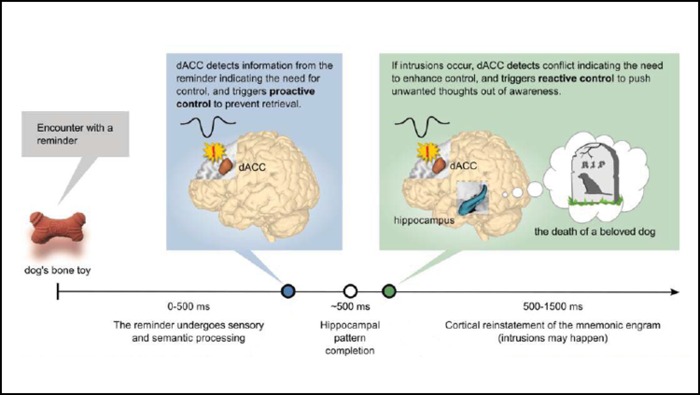Posted 2 days ago,
Reading 2 mins.
According to a new study, the human brain is endowed with a “cleaning system” for unpleasant thoughts. A discovery that could ultimately help to treat anxiety disorders.
In France, 21% of adults are affected by anxiety disorders at least once in their life, according to Inserm. This strong anxiety disrupts the functioning of the body and daily activities. To alleviate these anxieties, researchers may have found the solution: they discovered that the brain has a cleaning system that drives out unpleasant ideas.
An automatic mechanism that sweeps away unwanted ideas
Phobias, agoraphobia, social anxiety disorder or separation… Anxiety disorders are multiple and difficult to eliminate. However, according to researchers at the University of Cambridge, the body would be well made: the brain would be naturally endowed with a mechanism capable of driving out negative thoughts.
To reach these conclusions, they analyzed the brains of 24 people using electroencephalograms and a brain imaging system. At the end of the tests, they found that the brain had an “automatic scanning system” for negative ideas that was triggered when they appeared.
“When unwanted memories (creep into our brain), a control process engages the dorsolateral prefrontal cortex to inhibit hippocampal activity and shut it down“, observe the researchers.
However, scientists do not know how to explain how dark thoughts can trigger this system. The exact type of thoughts that cause this phenomenon also remain to be discovered.

In this context, scientists want to continue their research to understand the underside of this process.
Ultimately, this discovery may make it possible to treat patients with anxiety disorders, such as obsessive-compulsive disorders or phobias.
Anxiety disorders: what are the different types?
Anxiety is often linked to particular events (significant life change, exam, job interview, etc.) and generally disappears as soon as daily life resumes its course. It only becomes problematic when it appears for no reason and lasts over time. Anxiety can then be a sign of the presence of one or more anxiety disorders:
- Generalized anxiety;
- panic disorder;
- Specific phobias;
- Agoraphobia;
- social anxiety disorder;
- Separation anxiety disorder.
The symptoms, more or less intense, can be psychological or physical.
- Irritability, impulsivity, irrational fear, difficulty concentrating, decline in intellectual performance, inability to make plans…
- Digestive disorders, heart palpitations, hot flashes, pain, insomnia, fatigue, headaches, dizziness…
These disorders often affect behavior. The person suffering from anxiety can suddenly refuse to go to certain places, no longer support social contact…
Care by a health professional is then necessary to assess the presence of an anxiety disorder or another health problem that presents similar symptoms. Appropriate treatment (psychotherapy, medication, etc.) will then be offered.

